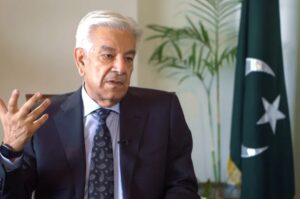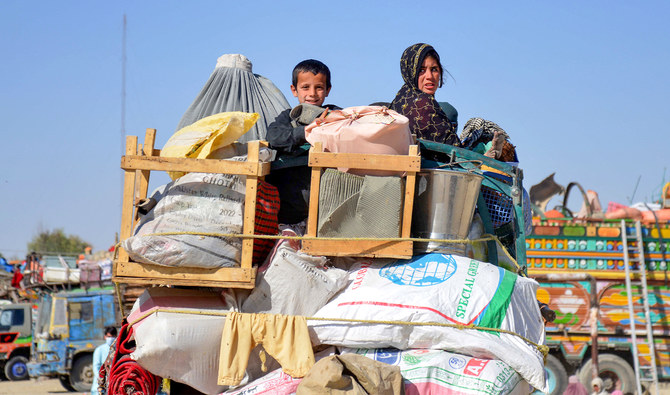Amid heightened tensions and a new military offensive, Pakistan’s Defence Minister Khawaja Asif has issued a stern warning that the country will not hesitate to launch attacks on Afghan territory if necessary. The announcement underscores the serious security concerns and strained relations between the two neighboring nations.
In a recent interview, Asif emphasized the importance of Pakistan’s sovereignty when asked about potential cross-border operations to target militants. “If the need arises, there is nothing more important than Pakistan’s sovereignty,” he stated. Addressing the legality of such actions, Asif pointed out that using Afghan soil to launch attacks on Pakistan is itself a violation of international norms, particularly when those responsible are provided safe havens by the Afghan authorities.
Rejecting any prospects of dialogue with the Tehreek-e-Taliban Pakistan (TTP), an armed group accused of launching attacks from Afghan territory, Asif declared, “There is no chance of a dialogue with them. What do we talk about? We need to have a common ground to speak to them.”

This hardline stance comes in the wake of Pakistan’s recent military initiative, Operation Azm-e-Istehkam, aimed at curbing escalating violence since the TTP ended a ceasefire in November 2022. The TTP, founded in 2007 and aligned with the Afghan Taliban, has been advocating for the reversal of the merger of Pakistan’s northwestern tribal regions with Khyber Pakhtunkhwa province and stricter enforcement of their interpretation of Islamic laws.
Relations between Pakistan and Afghanistan have been deteriorating, marked by numerous border skirmishes and closures of border crossings. Pakistan has consistently accused the Afghan Taliban of providing sanctuary to TTP militants, an allegation the Taliban denies.
In March, Pakistan conducted air strikes inside Afghan territory in response to attacks that killed seven soldiers in North Waziristan. The Afghan interim government condemned these strikes, claiming they targeted ordinary homes.
Despite these tensions, Pakistan has signaled a willingness to remain engaged with Afghanistan. Foreign Minister Ishaq Dar announced in the National Assembly that a delegation would attend United Nations-hosted talks with the Afghan Taliban in Doha on June 30. He emphasized that Afghanistan remains a top priority for Pakistan and hinted at future visits by officials to Kabul.
However, experts warn that Operation Azm-e-Istehkam might have adverse effects on Pakistan’s relations with the Afghan Taliban and may not achieve its intended goal of reducing violence. Riccardo Valle, a researcher with The Khorasan Diary, noted that previous air strikes targeting TTP camps failed to weaken the group and instead triggered strong propaganda responses from the TTP.
Over the past 18 months, Pakistan has experienced a surge in violence, with over 700 attacks in 2023 alone, resulting in nearly 1,000 deaths, primarily among law enforcement personnel. Despite numerous high-level visits to Kabul, including one by Defence Minister Asif and intelligence chief General Nadeem Anjum, mutual distrust between the two nations persists.
Valle highlighted the close relationship between the TTP and the Afghan Taliban, suggesting that the Afghan Taliban is unlikely to crack down on the TTP. He also pointed out that Operation Azm-e-Istehkam has already sparked resistance from residents and political parties in Khyber Pakhtunkhwa, potentially fostering further grievances that could benefit the TTP.
As Pakistan navigates this complex security landscape, its approach to dealing with Afghan-based armed groups will continue to shape its relations with Afghanistan and impact regional stability.
To Keep Updated Visit & Follow our Facebook Page Or Our Website




